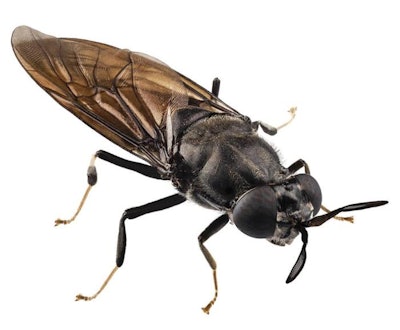
Insect protein for feeds is another area that lately is attracting my attention. Insect production is becoming more and more visible in our industry, with several startups and other companies investing more than EUR1 billion (US$1.2 billion), expecting EUR2 billion by 2025, as per the International Platform of Insects for Food and Feed, (IPIFF).
It is an interesting activity, not only for being relatively new, but because it is based on circular agricultural practices. Food waste and co-products from agri-food industries can be used to produce insects and the resulting frass (excreta of insects) is a valuable fertilizer. The protein and fat produced can be used in poultry, swine and aqua feeds, as well as pet food.
In the EU, farmed insects are considered "farmed animals," it is an agricultural activity falling under the scope of the EU rules. And maybe here is where things get tricky, concerning the issue I will discuss now.
During a very good presentation on insect protein by Heinrich Katz, treasurer of IPIFF, at the EuroTier virtual event last week, I watched the photographs of farmed insects. It crossed my mind in a sardonic way if people would now think of insect welfare. It took me longer to think about it than for questions to appear in the chat box on the issue.
Aren't we (or they) going too far with this questioning? The answer to this was devastating: insects have no such developed nervous system as humans. Plus, "Pain is a personal subjective experience that includes negative emotions. Pain is different from nociception, which is the ability to respond to damaging stimuli."
If we keep on going that way, we will end up also worrying about the welfare of Saccharomyces cerevisiae, used to produce the beer we drink. Or about the poor SARS-CoV-2 virus that hopefully will not survive within our bodies after the upcoming vaccination.
Yes, we must respect all living animals, but we need to eat. Firstly, we must have a holistic respect of all nature. So far, we haven't done so. Just look around yourself.
What do you think?


















